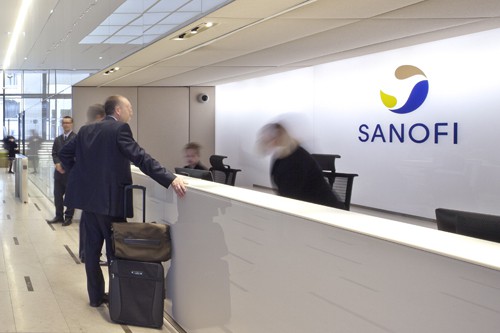
Sanofi and Regeneron Pharmaceuticals are paying $67.5m for an unusual licence which could enable them to get anti-cholesterol product alirocumab onto the market up to four months earlier than usual.
The companies will share equally the cost of buying a paediatric disease priority review voucher from another firm, BioMarin Pharmaceutical, which is perfectly entitled to sell or transfer it to them.
The move could allow the drug, one of a new class of medicines known as PCSK9 inhibitors, to steal a lead over rivals like Amgen’s evolocumab in the race to be first to market.
California-based BioMarin was awarded the voucher in February, when it received approval for Vimizim, a new biological product for patients with the rare disease Mucopolysaccharidosis type IVA, also known as Morquio A syndrome.
Issued by the US Food and Drug Administration, the voucher entitles the holder to designate a drug for priority review, which means the FDA will look at it within six months from filing rather than the standard ten months – and Sanofi and Regeneron’s PCSK9 inhibitor is expected to be filed by the end of this year.
Jean-Jacques Bienaimé, CEO of BioMarin, said: “Leveraging the sale of the priority review voucher to reinvest in products to treat rare and ultra-rare diseases makes the most sense for BioMarin given our stage of growth.
“We are very pleased that a patient population beyond BioMarin’s will potentially be able to benefit from a faster drug application review process,” he added.
The vouchers were designed in part to encourage companies to carry out R&D in therapy areas which have been less frequently travelled – the idea being that because the vouchers are allowed to be sold on to other companies there is a financial incentive for such potentially risky research.
Ned Braunstein, vice president of regulatory affairs at Regeneron, said: “The priority review voucher programme was established to provide incentives that would enhance innovation in key areas of unmet patient need.
“Our decision to acquire and leverage the voucher is clear evidence that this programme is a valuable incentive for biopharmaceutical companies.”
Alirocumab (also known as REGN727) has had positive results in phase III trials, outperforming rival drug Zetia (ezetimibe) from Merck & Co as a monotherapy.
Analysts have predicted that the leaders in the PCSK9 inhibitor class could achieve multi-billion dollar sales at peak if they can prove their value as an alternative to statins.
Earlier this year alirocumab came under scrutiny from the FDA, which asked for an assessment of its safety, leading to share pressure for both its development partners after Sanofi revealed the US regulator was investigating whether the drug has potential for “neurocognitive adverse events”.




